The Significance Of The Fight
There’s a short list of truly unforgettable sporting events in history. Jesse Owens shocked the world in the 1936 Olympics in Berlin, winning four gold medals in front of Adolf Hitler himself. In the 1982 World Cup semi-final, Diego Maradona scored two of Argentina’s winning goals. One of them was a work of beauty and skill, and the other he shockingly scored with his hand. Then there was “The Rumble in the Jungle” – the famous fight between the two legends Muhammad Ali and George Foreman.
Before that match in 1974, Ali was a former Heavyweight Champion and Foreman was the undefeated World Heavyweight Champion. It would have been a big fight, no matter what happened, but this fight was out of this world. Read on to find out more about one of the most memorable sporting events in history…
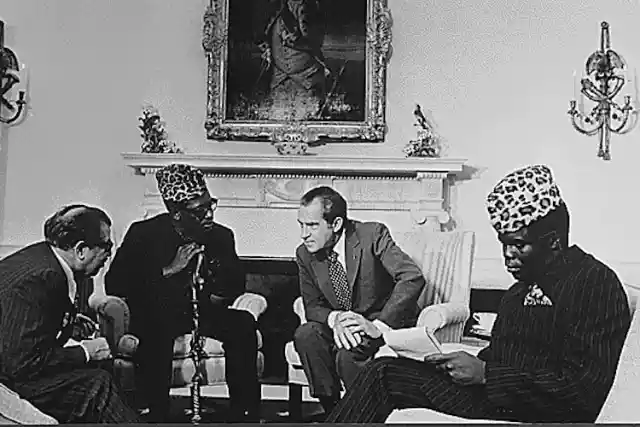
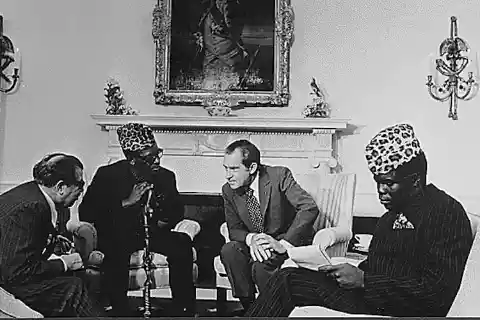
So many things made this fight special. Not only was it the first heavyweight championship match to take place in Africa, but the event was also sponsored by Mobutu Sese Seko, the president of the Republic of Zaire (now the Democratic Republic of the Congo). He promised to pay each fighter $5 million just for showing up.
Muhammad Ali supported the fight being held in Africa. He saw it as a way to bridge the gap between Africans and Black Americans. To promote the fight, a music festival was organized. It was called Zaire 74, and many major artists performed at the event, including Celia Cruz, Bill Withers, James Brown, B.B. King, Miriam Makeba, The Spinners, The Crusaders, and Manu Dibango.
The Lineup
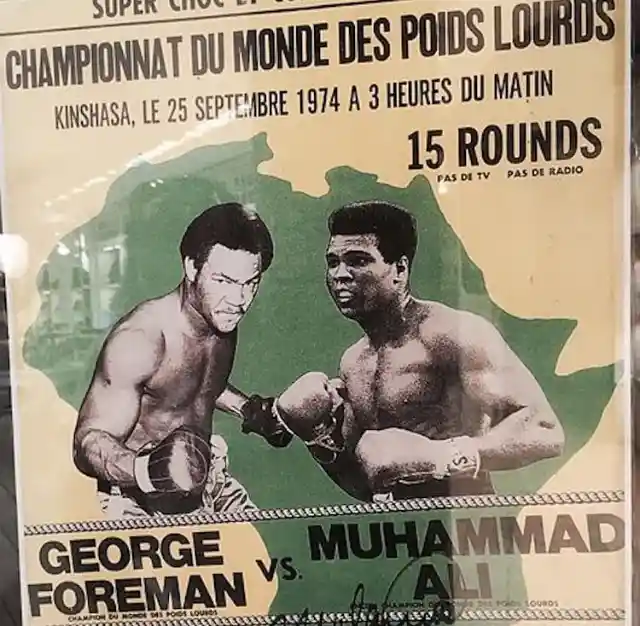
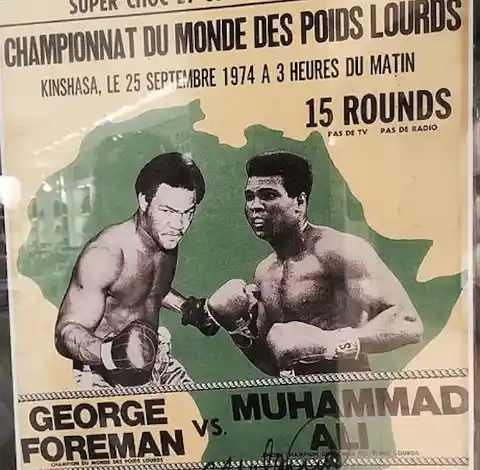
Even those who don’t follow boxing know the name Muhammad Ali. He was a world-famous American boxer and in the list of the most influential athletes of all time. Until the time of the fight, Ali was banned from boxing because he had refused to adhere to the draft, which required him to join the U.S. military, in 1967. During his boxing ban, he became a philanthropist and civil rights activist. Many believed that at 32 years old, he had lost the skill and agility required to defeat his opponent.
On the other hand, George Foreman was at the top of his athletic game. He had been undefeated at the time of the fight and had previously dominated Joe Frazier and Ken Norton. His weapons were his punch power and body size.
The Play-By-Play
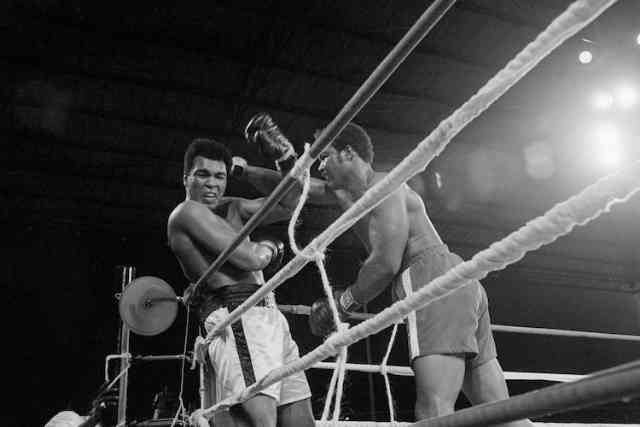
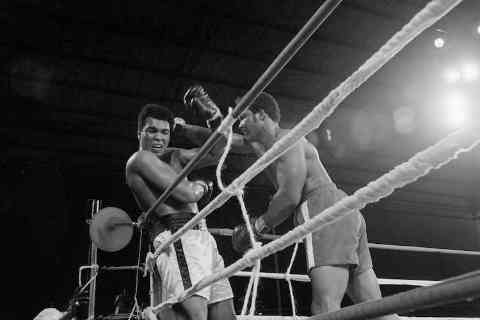
Over 60,000 people showed up for the big fight. The bell rang, and Foreman began unleashing massive blows on Ali. By leaning on the ropes, dodging, and blocking punches, Ali used his own stamina to wear Foreman down. This went on for round after round. Ali later called this his “rope-a-dope” tactic.
By round five, Foreman’s punches started to weaken. By round eight, Ali moved away from the ropes, popping Foreman with several right hooks. This tired Foreman even more. Next, Ali used a five-punch combination, followed by a hard right-handed punch, to knock Foreman to the ground. After eight counts, Ali was awarded the heavyweight title.
Immediately after the match, a torrential tropical storm descended on the Republic of Zaire. It was as if the fight was a call-and-response dance with the sky. The Earth responded loudly, but it didn’t slow the celebration that followed. It was a win for Muhammad Ali, for boxing, and for global relations, as Africa’s beauty had finally been presented to the world.
Post-Match
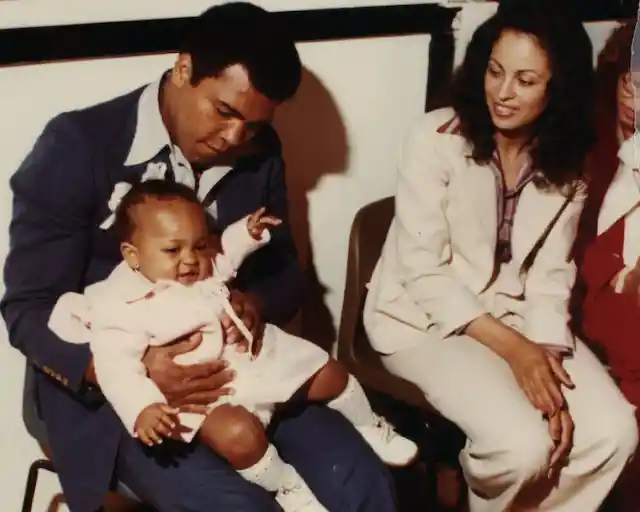
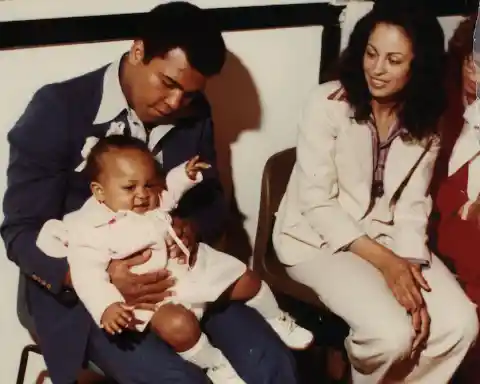
After he lost, Foreman called for a rematch, but he never got it. Later he expressed gratitude for having been involved in the greatest boxing match of all time. Eventually, Ali and Foreman became friends. Foreman went on to become a minister, a rancher, and a father of ten children. And much later in his career he’d recapture the championship, establishing a record for being the oldest heavyweight boxing champion in history.
In the years leading up to the “Rumble in the Jungle,” Muhammad Ali was not in good standing with America, but after the fight, the relationship began to recover. It seemed that winning that fight was more important than political and racial issues. Ali went on to lose and then gain the title one more time before retiring in 1981.
The Deeper Meaning
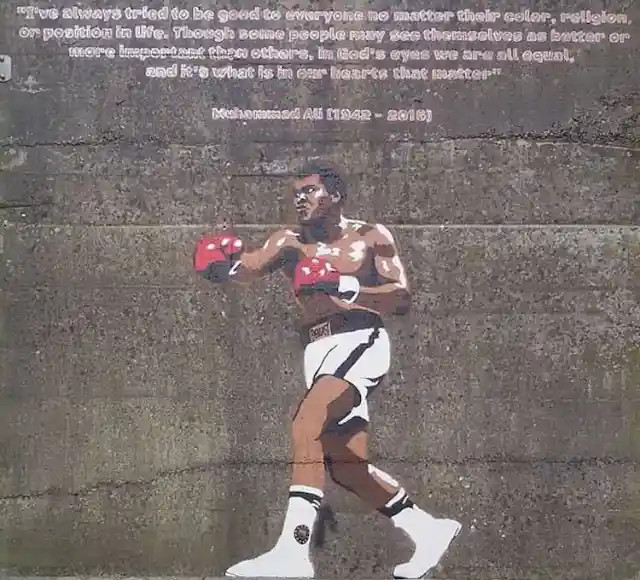
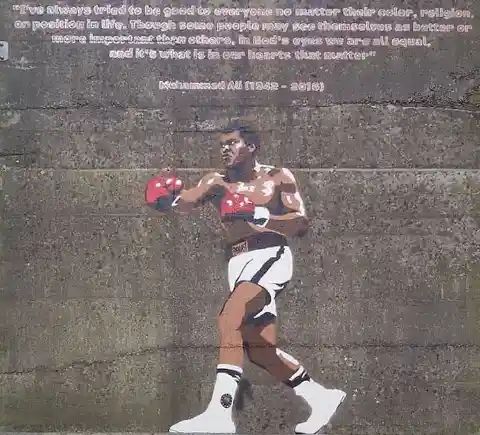
Not only was this fight meaningful for Ali, but it was also meaningful to the world. Ali was able to use his platform to inspire others to change. Though he had many battles, both in and out of the ring, he is remembered for his social, political, and humanitarian efforts.